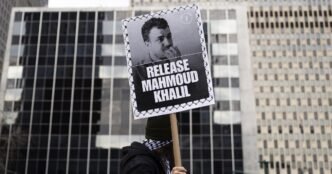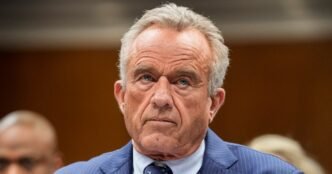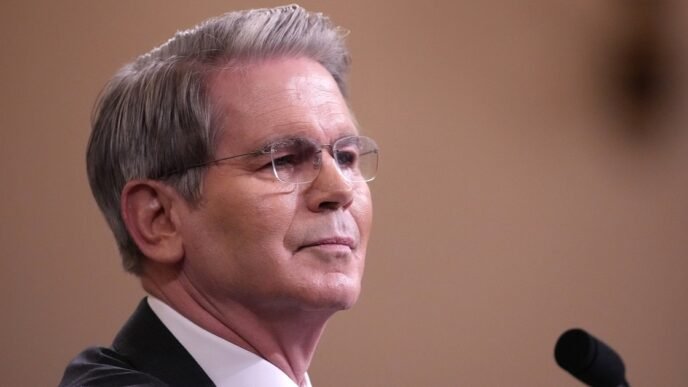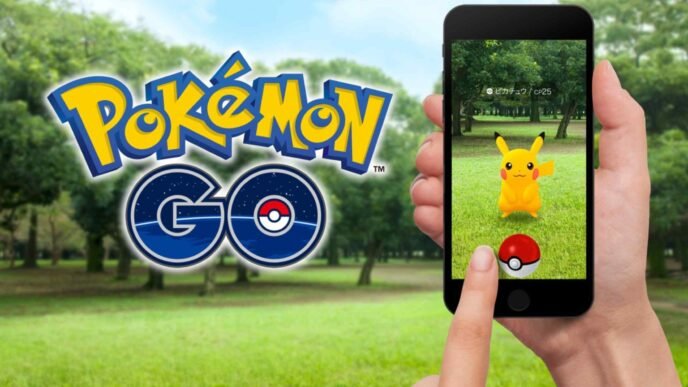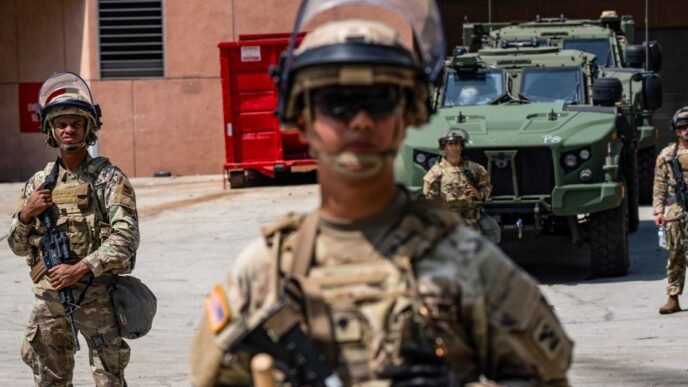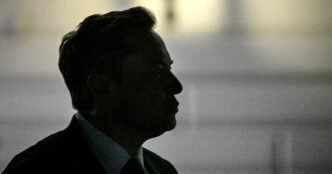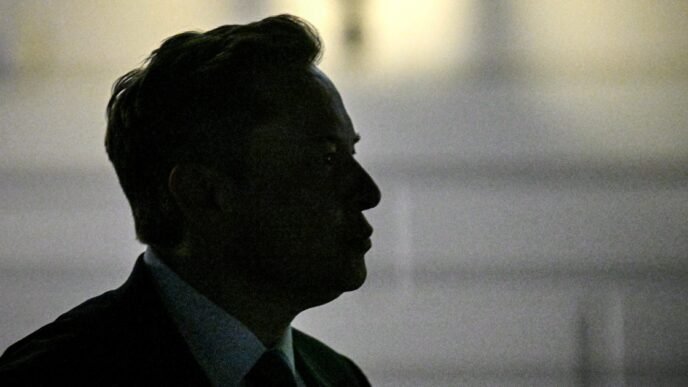After nearly three months in Immigration and Customs Enforcement detention, pro-Palestinian activist Mahmoud Khalil made a request to move closer to his family. It was denied by the agency last week, according to emails reviewed Wednesday by NBC News.
Khalil’s legal team asked in late May that he be transferred to a detention center in New Jersey to be closer to his wife and newborn son. He has been held in a Louisiana ICE facility since March.
ICE’s policy requires that detained noncitizen parents or legal guardians, who are prim caretakers or have custody of minor children, be held in facilities close to their children
The New Orleans ICE Field Office wrote that Khalil did not fall under the criteria of the agency policy and denied the request without explanation, according to the emails.
“I am declining your request that Mr. Khalil be transferred from the Central Louisiana ICE Processing Center in Jena, Louisiana to a detention center in New Jersey,” an official at the field office wrote.
Nora Ahmed, legal director of the ACLU of Louisiana, which is part of Khalil’s legal team, called the decision “cruel.”
“ICE’s directive recognizes that the government should have no role in destroying the family unit, and yet that is exactly what is happening here,” Ahmed said.
Neither ICE nor the Department of Homeland Security immediately responded to NBC News’ request for comment on the emails.
Khalil’s wife, Dr. Noor Abdalla, a Michigan-born dentist, gave birth to the couple’s son in April. Citing the ICE policy, his legal team reached out to the New Orleans office in hopes of getting him moved. The directive, issued in 2022, considers detained parents who have custody of their children as “covered individuals” under the policy. It stipulates that covered individuals must be placed “as close as practicable” to their minor children. It also requires ICE personnel to accommodate regular visitation between covered individuals and their minor children.
“There is no possible justification to detain Mr. Khalil at such a great distance from his minor child, in violation of ICE’s own policy, when ICE maintains numerous detention facilities within driving distance of where Mr. Khalil’s wife and infant son reside in New York City,” Khalil’s counsel wrote in an email to the New Orleans ICE office.
In an email to Khalil’s legal counsel, an official at the New Orleans ICE office said that the detainee did not qualify as a covered individual.
Khalil, who grew up in a Palestinian refugee camp in Syria and was granted permanent U.S. resident status last year, became a widely recognized activist amid the pro-Palestinian protests at Columbia University last year. In March, he was abruptly arrested outside of his student housing on campus and detained before being accused by the Trump administration of leading “activities aligned to Hamas, a designated terrorist organization.” He has not been charged with any criminal conduct.
ICE previously rejected Khalil’s request to attend his son’s birth, court documents show.
“The most immediate and visceral harms I have experienced directly relate to the birth of my son, Deen. Instead of holding my wife’s hand in the delivery room, I was crouched on a detention center floor, whispering through a crackling phone line as she labored alone,” Khalil said in a legal filing last week.
Khalil met his son for the first time last month, his attorneys said, just before an immigration hearing.
